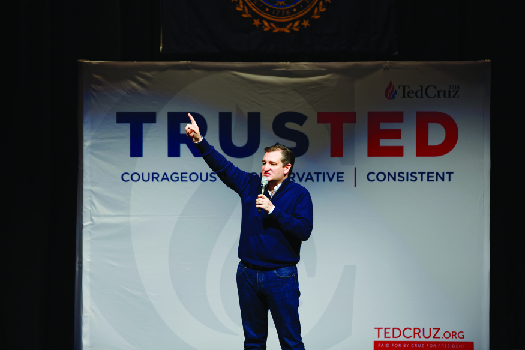| << Chapter < Page | Chapter >> Page > |
The rise of the presidential primary and caucus system as the main means by which presidential candidates are selected has had a number of anticipated and unanticipated consequences. For one, the campaign season has grown longer and more costly. In 1960, John F. Kennedy declared his intention to run for the presidency just eleven months before the general election. Compare this to Hillary Clinton, who announced her intention to run nearly two years before the 2008 general election. Today’s long campaign seasons are seasoned with a seemingly ever-increasing number of debates among contenders for the nomination. In 2016, when the number of candidates for the Republican nomination became large and unwieldy, two debates among them were held, in which only those candidates polling greater support were allowed in the more important prime-time debate. The runners-up spoke in the other debate.
Finally, the process of going straight to the people through primaries and caucuses has created some opportunities for party outsiders to rise. Neither Ronald Reagan nor Bill Clinton was especially popular with the party leadership of the Republicans or the Democrats (respectively) at the outset. The outsider phenomenon has been most clearly demonstrated, however, in the 2016 presidential nominating process, as those distrusted by the party establishment, such as Senator Ted Cruz and Donald Trump , who never before held political office, raced ahead of party favorites like Jeb Bush early in the primary process ( [link] ).

The rise of the primary system during the Progressive Era came at the cost of party regulars’ control of the process of candidate selection. Some party primaries even allow registered independents or members of the opposite party to vote. Even so, the process tends to attract the party faithful at the expense of independent voters, who often hold the key to victory in the fall contest. Thus, candidates who want to succeed in the primary contests seek to align themselves with committed partisans, who are often at the ideological extreme. Those who survive the primaries in this way have to moderate their image as they enter the general election if they hope to succeed among the rest of the party adherents and the uncommitted.
Primaries offer tests of candidates’ popular appeal, while state caucuses testify to their ability to mobilize and organize grassroots support among committed followers. Primaries also reward candidates in different ways, with some giving the winner all the state’s convention delegates, while others distribute delegates proportionately according to the distribution of voter support. Finally, the order in which the primary elections and caucus selections are held shape the overall race.

Notification Switch
Would you like to follow the 'American government' conversation and receive update notifications?